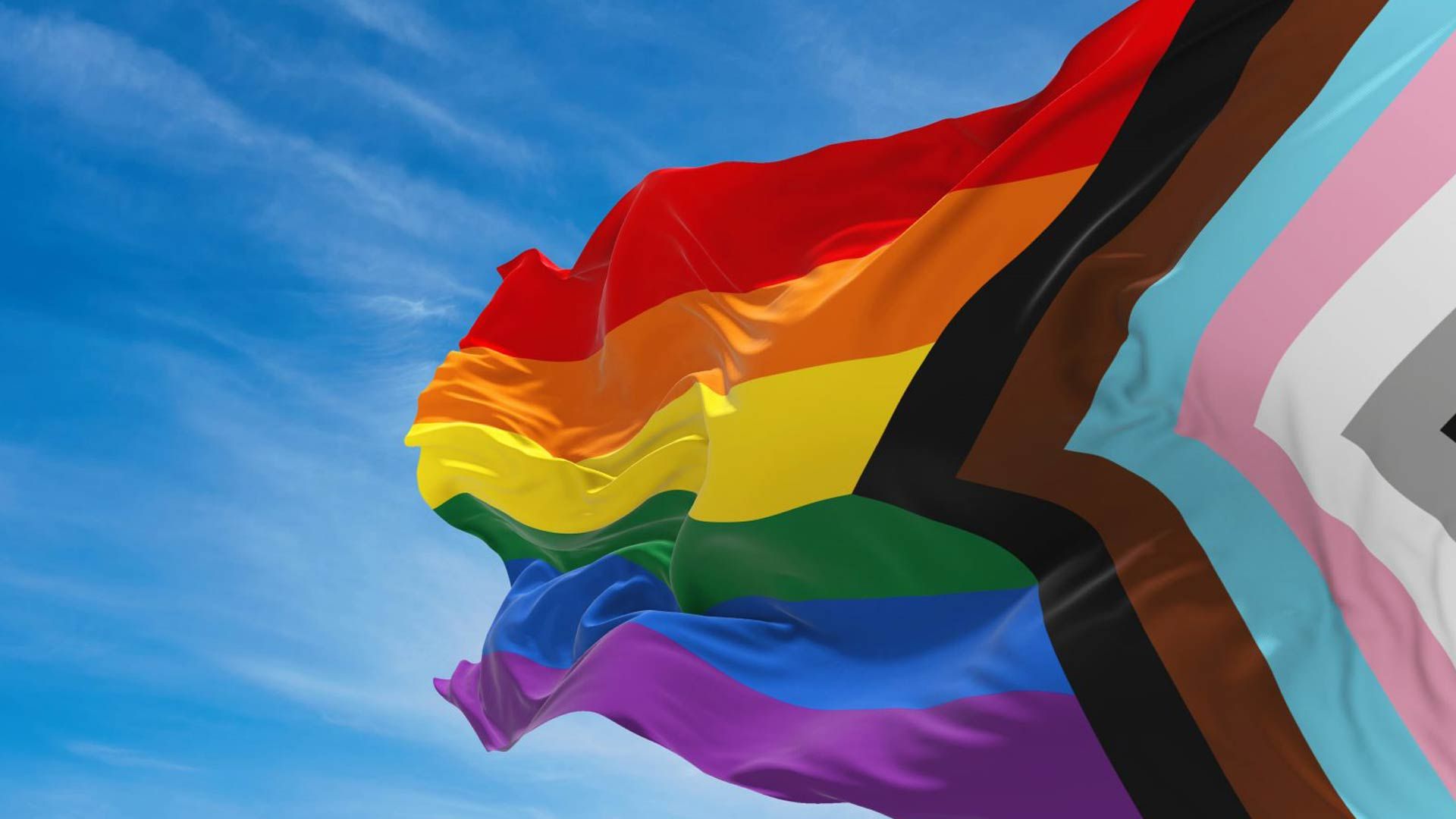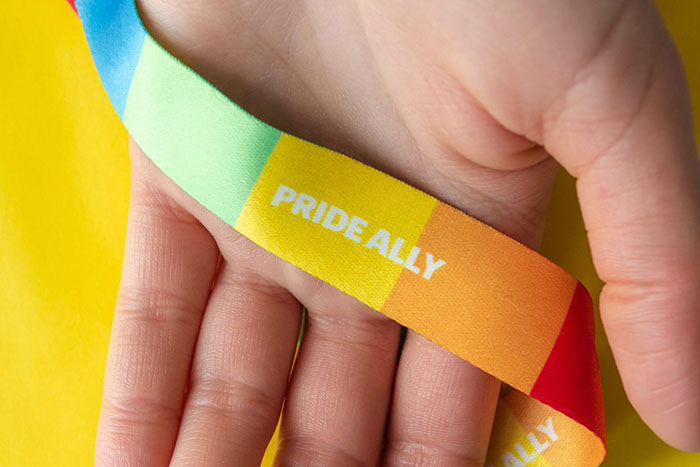Ally Is a Verb: How to Engage in Active LGBTQ+ Allyship

As parts of our world become more diverse and accepting, it might seem like the LGBTQ+ community is growing fast, but it is important to remember that this is somewhat misleading. People who don’t identify as heterosexual or cisgender have always been present throughout history, but only recently they have begun to feel comfortable enough to embrace and take pride in their identities.
It is very likely that you have at least one or multiple family members, friends, and coworkers who identify as members of the LGBTQ+ community. You want to support them, but you may often ask yourself how you can best go about showing this support. It is important to remember that being an “ally” is not a title that you can grant yourself. Rather, this title is granted by you by LGBTQ+ members when you actively show your advocacy for their rights, equality, and humanity. This goes beyond other marginalized communities as well. In other words, in order to be a real ally, you must consistently “ally” yourself with a community’s interests and work to dismantle prejudice both outwardly and internally.
Whether you are new to issues facing LGBTQ+ members, or you are a longtime ally and looking for new ways to support the community, the following list includes nine examples to help you engage in active allyship.

1) Educate yourself on the vocabulary. LGBTQ+ stands for Lesbian, Gay, Bisexual, Transgender, Queer. The “+” symbol denotes the many identities that are part of the community but may not be specifically represented by the general acronym. Lesbian, Gay, and Bisexual all refer to various sexualities one may have when one do not identify as a heterosexual person. Transgender refers to a person that does not identify as cisgender, i.e. they do not identify as the sex they were assigned at birth. Queer is an umbrella term for many LGBTQ+ members. It was previously used as a derogatory slur and has since been reclaimed by the community
There are many other titles someone may use to identify their sexuality and gender, such as Pansexual, Asexual, Nonbinary, Gender Fluid, and more. An active ally should educate themselves on the definition of these terms rather than rely on queer people to explain them.
2) Normalize pronoun usage. Many transgender and nonbinary people are misgendered all the time, and in an attempt to thwart this, they began to offer their pronouns in everyday interactions. Now, many cisgender people are also participating in this practice in an effort to normalize pronoun usage and avoid “outing” queer people. Common pronouns are she/her/hers, he/him/his, and they/them/theirs, and people can also identify as a mix of these, such as she/they or he/they. Neopronouns are also increasing in popularity, which is used to serve as pronouns without expressing gender, like xe/xyr/xem. When you first meet someone, ask for their pronouns and offer your own. Add your pronouns to your email signature and social media profiles. If you accidentally use incorrect pronouns when identifying someone, simply correct your mistake and move on.
3) Respond respectfully when a person comes out to you. “Coming out” is a term that has been popularized in the past century for LGBTQ+ person who reveals their sexual or gender identity. Ideally, it is done voluntarily, but they may be required to involuntarily share this information if other people “outs” them. Keep in mind that if someone comes out to you, it does not mean they are comfortable coming out to others, and you should not share their identity unless they give you permission to do so. It is okay to ask respectful questions such as “What can I do to support you?” Be open, honest, and most of all reassuring that you still care for them the same as you did before.
4) Call out hateful rhetoric. This has probably happened to you before: you’re in a large group, perhaps on campus or in an office, and someone makes an offhand joke that feels homophobic or transphobic. Maybe they didn’t mean to offend anyone, and you might feel nervous about making the situation even more uncomfortable. However, keep in mind that if gone unchecked, this person will likely continue making these types of hurtful jokes. If an (out) queer person is present, they might even worry for their safety if they attempt the confrontation. Always call out harmful words when they are said.
5) Identify your own prejudices. Oftentimes, prejudice goes deeper than outright hatred for a community. You might want to consider yourself an ally, but we all have deep-rooted preconceptions and stereotypes surrounding various LGBTQ+ groups, and this even happens within the community itself. Start by recognizing these biases within yourself, and then work to unlearn them. You can do this by reading and listening to queer experiences and joining support groups.
6) Support LGBTQ+-owned businesses, not Rainbow Capitalism. You may have noticed that many large corporations are releasing marketing campaigns and product launches adorned in rainbows during Pride month in June. Sometimes these are done in earnest, but more often than not these companies are simply participating in a “trend” that they believe will increase their profits, all the while actually donating to anti-LBTQ+ organizations. Instead of spending your money on these cash grabs, research queer-owned local and online businesses to support.
7) Uplift LGBTQ+ people of color. Like all marginalized communities, the LGBTQ+ community contains many intersectional identities, meaning a person’s various identities may combine to create different modes of discrimination and privilege. Queer people of color in particular suffer from constant systemic oppression, more likely to face poverty and unemployment than their white counterparts.
8) Engage with LGBTQ+ art, literature, and music. There is power in queer art, and reading/witnessing/listening to it will help you feel more comfortable with the LGBTQ+ community. Empathy is a vital part of the human experience. You will expose yourself to exciting new stories and perspectives while helping normalize the consumption of queer art for teenagers and young people who may also be questioning their identity.
9) Create impact by supporting progressive legislature and LGBTQ+ fundraisers. One of the most impactful ways to exercise your allyship is to get involved with the community. Stay current on the legislature that affects the LGBTQ+ community and, if necessary, sign petitions, march for change, and call your local representatives. If you have the means, donate to or volunteer your time at local LGBTQ+ centers.
Resource Categories
- Kiara’s Note – Blog
- Mental Health Matters – Blog
- Voices of Hope – Blog
- Humans of Jefferson Center
- Addiction & Substance Use
- Anxiety
- Child Mental Health
- Crisis and Trauma
- Depression
- Exercise
- Just The Facts
- LGBTQIA+ & Pride
- Medicaid
- Men’s Mental Health
- Parenting
- Recovery
- Senior and Older Adult
- Socializing
- Stigma
- Stress
- Suicide Prevention
- Support & Advocacy
- Teen’s Mental Health
- Treatment Options
- Women’s Mental Health